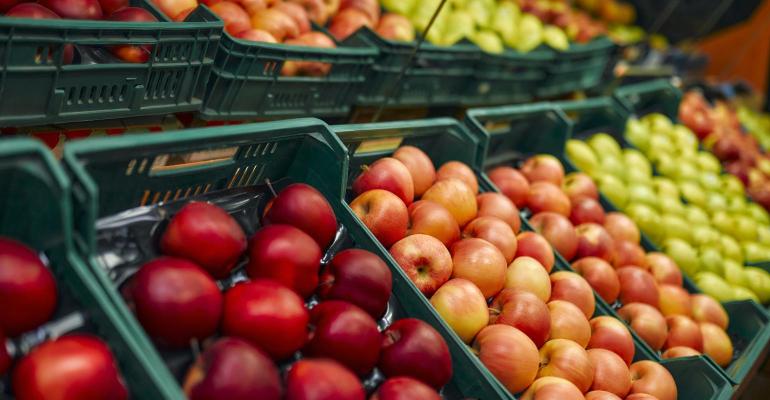TOP TAKEAWAYS
- Nine-in-10 consumers say fresh food makes them happy
- 68% of consumers surveyed are willing to pay a premium for fresh food
- At least 80% of consumers and grocers think food suppliers have raised prices more than necessary to increase their profits
When it comes to fresh foods, shoppers want more of it and are willing to pay a premium, according to a new report, even as price continues to be the main consideration for fresh food purchases.
A new survey by Deloitte reveals that 68% of shoppers are will to pay top dollar for fresh foods.
However, at least 80% of consumers and grocers think food suppliers have raised prices more than necessary to increase their profits. While price is a top consideration when buying fresh foods, consumers also look more to information related to supply chain and sustainability.
Popularity is on the rise as consumers believe in the health benefits of fresh food (83% of those surveyed), citing that it minimizes the risk of chronic health conditions and diseases, while fresh foods also contribute to weight loss.
Both consumers (30%) and grocers (36%) agree that the fresh department is where environmental, social, and governance (ESG) claims matter the most. ESG is expected to have an impact on the growth of the fresh food category, as some consumers place a premium on authentic and defendable sustainable food claims and knowing where their fresh food is sourced.
Transparency in the sourcing of fresh items is growing in importance as the Food Safety Modernization Act (FSMA) Section 204 took effect earlier this year and requires the FDA to set traceability requirements for many categories of fresh food.
Additional highlights from the survey findings include:
- 91% of consumers believe a wholesome diet includes fresh food
- 64% of grocery retail executives say fresh food is the most strategically important department for their company’s sales growth plan over the next 12-36 months
- On average, consumers are willing to pay 28% more for fresh food than frozen, canned, or processed alternatives
- Relative to consumer survey responses, grocers appear to overestimate the importance consumers place in the purchase drivers of organic (+47 percentage points), locally grown/sourced (+33 percentage points), non-GMO (+31 percentage points), and environmental sustainability (+27 percentage points)
- A majority of consumers value fresh foods for health (86%), convenience (84%) and preserving freshness, and reducing food waste (77%)
Finally, grocers rank highest among retail formats for trust. Deloitte also looked at how personalized experiences, embracing responsibility, or using fresh food as medicine all require high levels of consumer trust to be realized.
Trust in the grocery store (37%) is more important to consumers surveyed than trust in food brands (30%) or government regulators (24%). Thirty-eight percent of consumers are willing to share some of their personal health information with their grocer to get personalized food recommendations, and 46% would likely use a grocer’s app to make healthier food choices. Thus, eight-in-10 grocery retailers are investing in digital functionality for this reason.
The Deloitte report is based on a survey of 2,000 U.S. consumers conducted in July, as well as 100 U.S.-based grocery retail executives from organizations with over 10,000 employees, and examines the current state of the fresh food industry.





